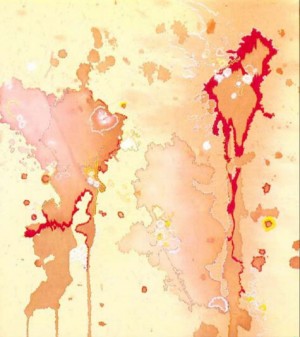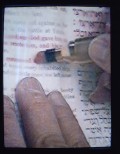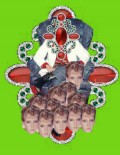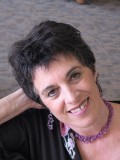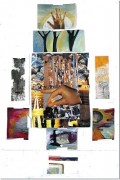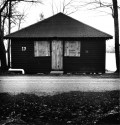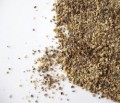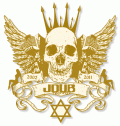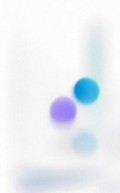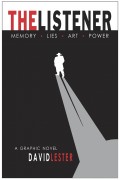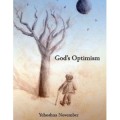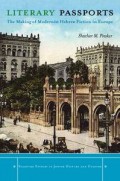Arts and Culture
The World Without You
An excerpt from Joshua Henkin’s new novel, The World Without You, to be published by Pantheon Books on June 19.
Feminist Art in Traditional and Religious Judaism
Jewish feminist art by women active in the traditional religious world is still a marginal phenomenon in the general art world and in the Israeli art field in particular. This article, together with the first major exhibit in a museum to exhibit such work, “Matronita: Jewish Feminist Art” (The Museum of Art Ein Harod) invites a reflection on the complexities of the feminist Jewish religious experience. David Sperber, one of the curators of the exhibition (with Dvora Liss), here reviews the artistic horizons of this fascinating dialogue.
Love, Hate & the Jewish State 5.0: Gender Discrimination in Israel
Congregation Beth Elohim, 7–10 pm
274 Garfield Place, Brooklyn, NY
Join us for the fifth in a series of highly interactive, non-persuasive, non-political discussions with a diverse group of people in their 20s and 30s.
Wrestling with Esther: Purim Spiels, Gender, and Political Dissidence
Modern Purim celebrations use the traditional play as a vehicle for popular education around a broad range of issues by playing with the iconic roles typified by the Megilla’s characters: good girl, bad girl, stupid king, valiant citizen, evil politician. These traditional players can easily and informatively be mixed up with any combination of modern kings, s/heroes, insider/outsider activists, popular resistance movements, and evildoers-ex-machina.
Polyartist: An Interview with Richard Kostelanetz
There may not be a causal relationship between Jewishness and an avant-garde sensibility, but Jewish communities have given rise to some terrific avant-garde work. Or maybe Jews just tend to be comfortable outside the mainstream, which is often where the most interesting creative work flourishes and finds its home.
Quince
The quince was a cure-all to the ancients, but in Avshalom Kaveh’s twisted world, the fruit takes sides against our natural capacity to forgive and forget. This tragicomic story of angels and human devilry is Kaveh’s first publication in English. (Translated by Stephen Katz.)
In Song Together: For Linda Hirschhorn, Music is a Path to Transformation
Harmony is like drash. Singing a song simply is like pshat; harmonies give you the chance to interpret text. If you hear a lyric, especially sung in counterpoint, the words coming at a different time, you’ll get a different experience of what the words might mean, what’s important. Major or minor, syncopated or lullaby: those communicate so much. It’s important to understand the text, to try to find how my song matches my understanding of the text.
Winners of the Anna Davidson Poetry Prize
The Anna Davidson Rosenberg Prize for Poetry on the Jewish Experience has been awarded since 1987 and is funded by the Dorothy Sargent Rosenberg Memorial Fund. We are pleased to publish the winning poems here, by Dan Bellm, Jehanne Dubrow, and Anna Torres.
Elsewhere: a Faith story, for Grace Paley
She woke up to a clinking sound like a stuck thought, as if there were some pestering obstacle in a story she wasn’t writing that would work itself out in her sleep if she could pay attention enough.
Albert J. Winn's “Summer Joins the Past”
Summer camps offer brief encounters with utopia. Though usually located somewhere out in the wild, they are constructed, self contained domains, each fostering a worldview of its own. Dedicated to the collective living of an ideal existence, summer camps promote fantasy.“Summer Joins the Past,” Albert J. Winn’s series of photographs of abandoned Jewish summer camps in North America, offers a quiet yet eloquently evocative tour of these places out of time.
Is There a Future for the New Jewish Culture?
The big wave of hip, innovative Jewish media seems to have washed out.
Five Stories
It cost me a great effort to discover the hidden secret of the things, but soon I was seized with panic because without my realizing it, I lost the sense of their simplicity.
New Jew
Nina Shepard had been a Jew for fifteen minutes. She sat at her table at the Ivy and regarded her soft-shell crab.
Digging in the Dirt... in Israel and L.A.
Stacie Chaiken writes, “I cannot simplify my relationship with Israel any more than I can simplify my relationship with my mother.” Read an excerpt from her solo play “The Dig” here, and see it in person at the Zeek L.A. Launch Event on Thursday, May 12.
The Listener: Memory, Lies, Art, Power
Holocaust literature must now exceed hundreds of thousands of volumes, the rise of Hitler to power in Germany itself thousands more tomes, but comic art has been sparse. David Lester’s new volume is a remarkable contribution to the genre.
Holy longing, holy language: Yehoshua November’s "God’s Optimism"
A wordless niggun I know asks why a soul enters the world, and then answers “to know God.” Surely that is the answer these poems provide.
The New Jewish Literature
We are witnessing a new era of Jewish writing in the United States, and as its readers we are particularly pleased to be in a position to watch it develop.
The Metamorphosis: Jonathan Kis-Lev's Jerusalems
Kis-Lev’s images depict Jerusalems which have become mundane, detached from heaven, sundered from holiness. Only in such a Jerusalem could mosque, synagogue, and church equally and peaceably divide the horizon.
Rethinking Modern Hebrew Literature: A Review of Shachar M. Pinsker's Literary Passports
Hebrew literature did not begin in Palestine. It began in Europe, as part of a distinctly modernist approach to 20th century European Jewish life.
![[the current issue of ZEEK]](../../../image/2/100/0/5/uploads/leftistethicistgraphic-52842c6a.png)
- 5000 Pages of Zeek
- Founded in 2001, Zeek was the first Jewish online magazine, and we have over 5000 pages online to prove it, all available free of charge. Read more in the Archive.


